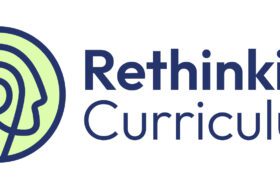In this online panel discussion chaired by Cat Scutt (Director for Education Research, Chartered College of Teaching), Paul Kirschner and Carl Hendrick talk about the science of learning and share key messages from their new book How Learning Happens: Seminal Works in Educational Psychology and What They Mean in Practice. Receive a 20% discount when purchasing the book via Routledge. Go to our member discount page to find out more. Relevant links: The Ten Sins of Education - A sample chapter from Paul Kirschner and Carl Hendrick's book
If you run a book club, you may be interested in some discussion questions written by Paul A. Kirschner and Carl Hendrick.
Stubborn myths in education
Some further information too on using cognitive science in education
What does this look like in the classroom?
There is more information on Cognitive Load Theory and its application in the classroom:
Reflecting on Kirschner: Do learners really know best?
Join us or sign in now to view the rest of this page
You're viewing this site as a guest, which only allows you to view a limited amount of content.
To view this page and get access to all our resources, join the Chartered College of Teaching (it's free for trainee teachers and half price for ECTs) or log in if you're already a member.





